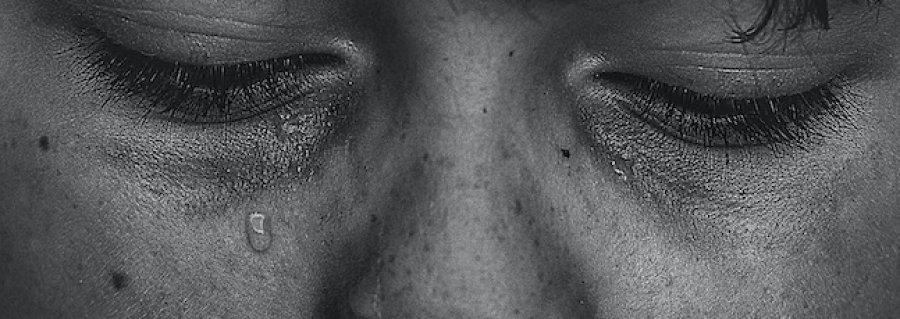What Is the Difference Between Molested and Sexually Assaulted

The issue of sexual misconduct, especially towards children, is a dire topic that has increasingly drawn the attention of society. Despite the gravity of the matter, common misconceptions persist in the understanding of the terms: sexual molestation and sexual assault. While both sexual assault and molestation can be charged as a crime, they are not the same. Both of them are clearly explained by the law, and in this article, you will learn exactly what they are and how to notice the early warning signs.
Sexual Assault
Sexual Assault is referred to as intentional sexual contact with another person without their consent. This can include unwanted physical contact, non-physical sexual harassment, attempted sexual assault, threats of sexual assault, or attempted sexual contact without consent. Sexual assault can happen to anyone, at any age. It does not matter if you are male or female; it does not matter what your relationship is with the person who assaulted you. Sexual assault is never your fault.
Sexual assault includes but is not limited to activities such as:
- Fondling or touching the victim inappropriately
- Forcing the victim to engage in sexual acts
- Rape or attempted rape
- Sodomy
- Indecent exposure or exhibitionism
It is pertinent to note that non-touching offenses, such as forcing a victim to watch pornographic material or masturbate, are also classified under sexual assault. Sexual assault can occur to individuals of all ages, including children and adults, and in a variety of environments such as workplaces, homes, and online platforms.
Sexual Abuse
Women and children are the most frequent victims of sexual abuse. Most of the time, sexual abuse at a young age also includes deviation of intercourse or even sexual intercourse. So, even if the offense does not follow the definition exactly, if sexual touching was involved or exploitation, the act will be considered just as harmful and devastating for the child. You can consult with a sexual abuse attorney about your case and determine if you should file a sexual abuse claim.
Touching sexual offenses include:
- Fondling
- Making a child touch an adult’s sexual organs
- Penetrating a child with a penis or object (anus or vagina)
Non-touching sexual offenses are considered:
- Indecent exhibitionism or exposure
- Deliberately exposing a child to obscene exhibitionism
- Exposing a child to sexual intercourse deliberately
- Exposing a child to pornographic material
- Masturbating in from of a child
If you think your child has been the victim of sexual abuse, you should get the help of a lawyer and ask them what evidence you need to prove the assault. A lot of sexual abuse cases are dismissed because of the lack of proof and the longer you wait, the harder it becomes to find the evidence needed for your case.
Molestation
While sexual abuse can happen across all ages, molestation is limited to younger children. A child penis or vagina is too small for direct physical penetration. As a result, the molestation occurs when a child is obligated to:
Child molestation can include the following acts:
- Inappropriate touching of a child's sexual organs
- Forcing a child to perform an oral sex act
- Exposing oneself to a child
- Creating pornographic content involving a child
- Statutory rape, which involves sexual intercourse with a person below the age of consent
Children are extremely affected by molestation. As a parent is crucial to be aware of your child’s behavior and notice even the smallest changes. If your child tells you about their new adult friend, you should act.
But you should remain vigilant with all adults present in your child’s life, especially the adults in power position (relatives, family friends, school staff). It is less likely for children to report the adults if they know them.
Your attorney can support you in bringing the abuser to justice and make them pay you the compensation your child needs to overcome this tragic event.
Differentiating Between Child Molestation and Sexual Assault

While both child molestation and sexual assault involve sexual misconduct, the key distinction lies in the victim's age. Child molestation specifically refers to sexual misconduct involving minors, whereas sexual assault can occur to individuals of any age.
Child molestation typically refers to isolated or single instances of sexual assault against a child, often under the age of 12. It implies a single act of sexual assault, whereas sexual assault refers to a pattern of sexual abuse that occurs over a period of time. It's worth noting that many cases of sexual assault begin as child molestation and subsequently develop into child sexual assault if the alleged offender persists in the misconduct.
Legal Consequences: Child Molestation and Sexual Assault

The legal penalties for child molestation and sexual assault vary based on the specifics of the crime and the jurisdiction in which they occur. However, both offenses often carry severe penalties.
The penalties can vary based on factors such as:
- The ages of the perpetrator and the victim
- The nature and severity of the sexual acts
- The use of force, threats, weapons, or drugs
- The relationship between the perpetrator and the victim
- The number and frequency of the offenses
Penalties for Child Molestation
The penalties for child molestation depend on the ages of the defendant and the victim. For instance, if the defendant is 18 years or older and the victim is 12 years old or younger, it can be considered a life felony, punishable by up to life imprisonment or a maximum of 40 years. Penalties may be less severe if the defendant is younger than 18 or if the victim is older than 12 but younger than 16.
Penalties for Sexual Assault
Similarly, penalties for sexual assault also vary depending on the ages of the defendant and the victim. If the defendant is over 18 and commits sexual battery against a minor under the age of 12, it may be considered a capital felony, punishable by either a sentence of life imprisonment or the death penalty. The punishments can be less severe if the victim is older than 12.
Additional Consequences for Child Sex Crimes
Beyond legal penalties, individuals convicted of child molestation and sexual assault also face additional consequences that can significantly impact their lives.
These additional consequences can include:
- Registration on the National Sex Offender Registry
- Prohibition from working in an unsupervised environment with children
- Restrictions on living or traveling freely
- Limited job opportunities
- Potential requirements to maintain a certain distance from children, including their own
Getting Help
If you are a victim of sexual assault or molestation, you are not alone. There are resources and support available for you. Organizations such as RAINN, the National Domestic Violence Hotline, and the National Sexual Assault Hotline offer support and resources for victims of sexual misconduct. These organizations provide critical services, including crisis support and counseling.
Legal representation is crucial for victims of child molestation and sexual assault seeking justice. Experienced attorneys can help navigate the complex legal processes and work to ensure the victims' rights are upheld.
Prevention of sexual misconduct begins with awareness and education. Recognizing the signs of sexual abuse and understanding the difference between child molestation and sexual assault are the first steps towards prevention. Additionally, open communication about these topics can contribute significantly to reducing instances of sexual abuse and
Conclusion:
Both sexual assault and sexual molestation are considered to be a form of sexual violence, but they differ in their intent. Sexual assault is a form of sexual violence that is more widely defined. It can happen in many different ways, and the main intent of the act is not necessarily sexual. Sexual molestation, on the other hand, is a form of child sexual abuse. It is a form of child sexual abuse with the main intent to arouse the person or persons involved.
For more information about molestation and sexual abuse, you can contact the best criminal defense criminal defense attorneys for a free consultation of your case!
More to Read:
Previous Posts:










